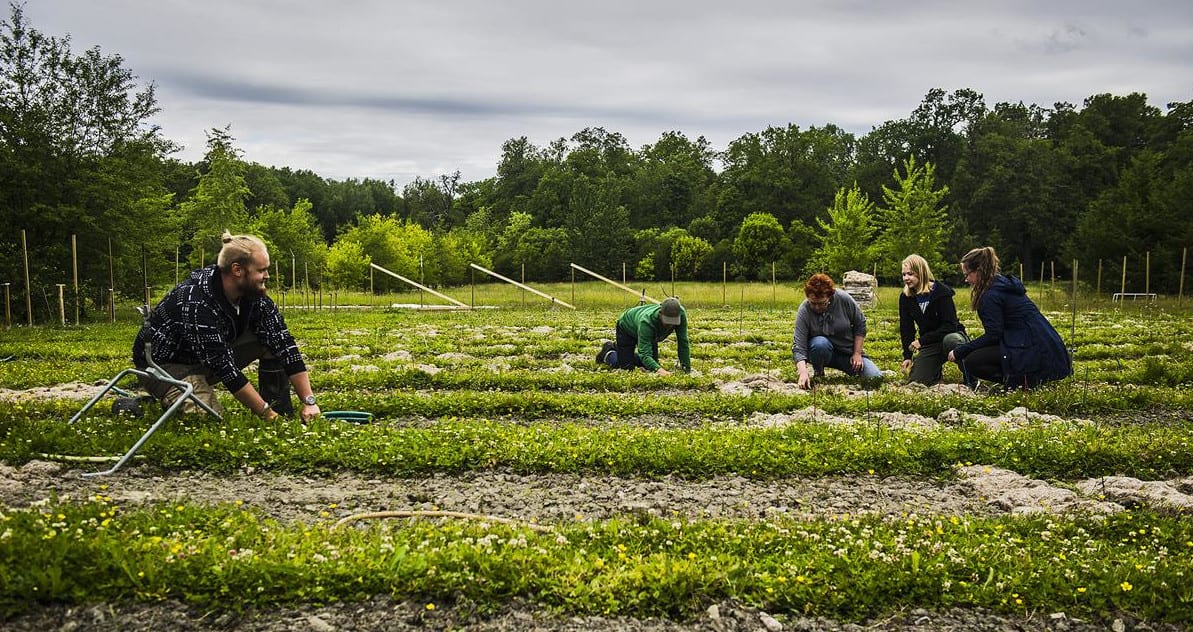Glyphosate in ecosystems
Glyphosate is the most used pesticide globally. Its herbicidal activity is based on inactivation of an enzyme of the shikimate metabolic pathway, and it thus kills non-selectively herbaceous plants. It has been regarded harmless to animals and humans, because the shikimate pathway does not occur in animals. However, it can be found in many microbes. Thus, glyphosate may affect the microbial activity and modify microbial community of the soil, plants and other interacting organisms.
In our project we take advantage of novel technologies to examine microbiota in plants and animals, their interactions in plants via phytohormone signaling pathways, and the effects of glyphosate on secondary plant defense chemicals, plant performance, and performance and well-being of both invertebrate and vertebrate animal model species. The project leans on experimental field site (founded in 2014) simulating the till/no-till cultivation using replicated plots with and without glyphosate application in the University of Turku Botanical Garden. We have chosen important Finnish crops (broad horse bean, potato, meadow fescue, oat, strawberry) as model plants in the field experiment to study indirect plant associated microbe responses to glyphosate application. Direct glyphosate effects on herbivores via food on life history traits and physiological responses and gut microflora are studied on mealworms and Japanese quails. Indirect effects of glyphosate via soil on herbivores are studied using Colorado potato beetles as model organism. Our project is aiming to gain a holistic view of possible glyphosate effects in the agroecosystem.




